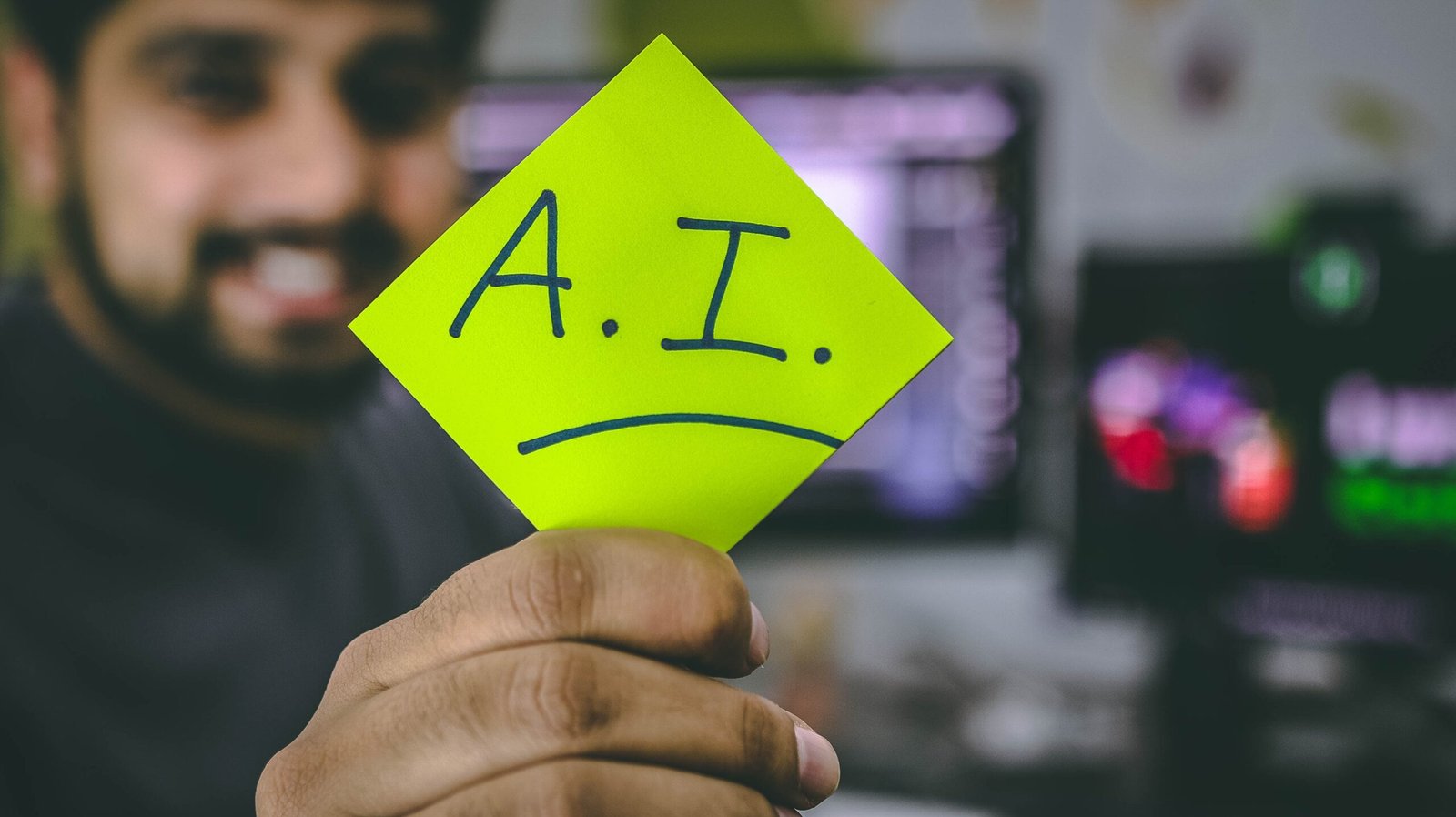Have you ever wondered about the significant role that AI plays in the realm of marketing? With the constant evolution of technology, artificial intelligence has brought forth a multitude of opportunities and possibilities in the marketing world. From data analysis to personalized customer experiences, AI has revolutionized traditional marketing strategies, allowing businesses to reach new heights of success. Join us as we explore the various ways in which AI is shaping the future of marketing and uncover the undeniable impact it has on the industry.
The Definition of AI in Marketing
Artificial Intelligence (AI) has emerged as a game-changer in the field of marketing. It refers to the use of technology and algorithms to simulate human intelligence in machines, enabling them to analyze and interpret data, make decisions, and solve problems. AI in marketing encompasses a wide range of applications, including market research, customer analysis, content creation, advertising, email marketing, social media marketing, search engine optimization, and customer support. By leveraging AI, marketers can gain powerful insights, personalize customer experiences, optimize marketing campaigns, and improve overall efficiency and effectiveness.
Understanding Artificial Intelligence
Artificial Intelligence can be defined as the capability of a machine to imitate intelligent human behavior, such as learning, reasoning, and problem-solving. AI systems use techniques like machine learning, natural language processing, computer vision, and deep learning to process vast amounts of data, detect patterns, and make predictions. By simulating human cognitive processes, AI algorithms can analyze complex data sets, identify trends, and provide valuable insights to marketers. This enables marketers to make data-driven decisions, understand customer preferences, and tailor their marketing strategies to achieve better results.

This image is property of images.unsplash.com.
Marketing and Its Importance
Marketing plays a crucial role in any business’s success, as it involves various activities aimed at attracting, engaging, and retaining customers. Effective marketing strategies help businesses build brand awareness, generate leads, drive sales, and foster customer loyalty. Traditional marketing approaches often rely on manual analysis and decision-making, which can be time-consuming and prone to human biases. AI in marketing offers a more efficient and accurate alternative, allowing marketers to leverage advanced technology to enhance their marketing efforts and achieve better outcomes.
AI in Market Research
Market research is a vital component of marketing, as it provides insights into consumer behavior, market trends, and competitor analysis. With AI, market research becomes more efficient and insightful.
Enhancing Consumer Insights
AI technologies can process vast amounts of consumer data, including demographics, purchasing behavior, browsing history, and social media activity. By analyzing this data, AI algorithms can identify patterns and trends, allowing marketers to gain a deeper understanding of consumer preferences, needs, and motivations. These valuable insights empower marketers to create targeted marketing campaigns, develop new products and services that align with consumer demands, and tailor their messaging to resonate with specific customer segments.
Predicting Market Trends
AI algorithms can analyze historical market data, social media trends, and online discussions to identify emerging market trends and consumer sentiments. This enables marketers to stay ahead of the competition and adapt their strategies to capitalize on new opportunities. By leveraging AI-powered predictive analytics, marketers can foresee changes in consumer behavior, industry trends, and market dynamics, enhancing their ability to make informed decisions and drive business growth.
Competitor Analysis
AI technologies can also help marketers monitor and analyze competitor activities. By collecting and analyzing data on competitor products, pricing, marketing campaigns, and customer feedback, AI systems can provide valuable insights into competitor strategies. Armed with this information, marketers can identify gaps in the market, differentiate their offerings, and develop competitive pricing and promotional strategies. Overall, AI in market research empowers marketers with accurate and comprehensive data-driven insights, enabling them to make well-informed decisions and gain a competitive edge.

This image is property of images.unsplash.com.
AI in Customer Analysis
Understanding customers is paramount for driving successful marketing strategies. AI can revolutionize customer analysis by providing deeper insights, personalizing experiences, and predicting behavior.
Segmenting Customer Base
AI algorithms can process vast amounts of customer data and segment them into distinct groups based on various attributes like demographics, behavior, preferences, and purchasing history. By categorizing customers into different segments, marketers can create targeted marketing campaigns, delivering personalized content and offers to each segment. This enables businesses to enhance customer engagement, improve conversion rates, and build long-term customer loyalty.
Personalizing Customer Experiences
AI-powered personalization enables marketers to deliver highly relevant and tailored experiences across various customer touchpoints. By leveraging AI algorithms to analyze customer data, marketers can personalize website content, product recommendations, email marketing, and even personalized advertisements. This level of personalization strengthens customer relationships, increases customer satisfaction, and improves overall engagement and brand loyalty.
Predicting Customer Behavior
AI can analyze historical customer data, including purchase history, browsing behavior, and interactions, to predict future customer behavior. By using machine learning algorithms, marketers can identify patterns and trends that provide insights into customer preferences, needs, and responses to marketing efforts. This predictive capability enables marketers to segment customers effectively, deliver personalized experiences, and anticipate customer needs. By understanding and predicting customer behavior, marketers can optimize their marketing strategies to maximize customer satisfaction and drive business growth.
AI in Content Creation
Content creation is an integral part of marketing, and AI technologies can greatly enhance the efficiency and effectiveness of this process.
Automated Content Generation
AI-powered content generation tools can automatically create content based on pre-defined templates, keywords, and other parameters. These tools leverage natural language processing and machine learning algorithms to generate engaging and informative content, such as blog posts, social media updates, and product descriptions. Automated content generation saves time and effort for marketers, enabling them to create a larger volume of content and cater to different customer segments.
Content Optimization
AI algorithms can analyze content performance, user behavior, and search engine ranking factors to provide recommendations for optimizing content. By leveraging AI-powered content optimization tools, marketers can improve their content’s visibility, relevance, and engagement. These tools can suggest keyword optimizations, meta tags, and content structure changes to improve search engine rankings and increase organic traffic. AI-powered content optimization ensures that marketers can produce high-quality content that resonates with their target audience and drives desired results.
Dynamic Content Creation
Dynamic content refers to personalized and adaptive content that adjusts based on the user’s preferences, behavior, or other contextual factors. AI technologies enable marketers to deliver dynamic content by leveraging real-time data, machine learning, and personalization algorithms. Dynamic content creation allows marketers to serve personalized recommendations, offers, or updates to customers, creating a more engaging and personalized experience. By tailoring content to meet individual needs, marketers can increase customer engagement, improve conversion rates, and foster long-term customer loyalty.

This image is property of images.unsplash.com.
AI in Advertising
Effective advertising is essential for reaching audiences, promoting products, and driving business growth. AI technologies can revolutionize the advertising process by delivering targeted ads, automating ad placements, and optimizing ad performance.
Targeted Advertising
AI algorithms can analyze vast amounts of consumer data, including demographics, browsing behavior, social media activity, and purchase history, to identify and target specific audience segments. This allows marketers to create personalized and highly relevant advertisements that resonate with individual customers. By delivering targeted ads, businesses can maximize ROI by reaching the right people at the right time, increasing the likelihood of conversion.
Programmatic Advertising
Programmatic advertising platforms leverage AI and real-time bidding (RTB) to automate ad buying, placement, and optimization. These platforms use sophisticated algorithms to analyze audience data, ad inventory, and performance metrics to deliver the most relevant ads to target audiences. This automation saves marketers time and effort and ensures that ads are shown to the most relevant audiences, increasing the effectiveness and efficiency of advertising campaigns.
Ad Performance Optimization
AI-powered analytics tools enable marketers to measure and optimize ad performance in real-time. These tools can track various metrics, such as click-through rates, conversions, and return on ad spend, and provide insights into ad performance. By leveraging these insights, marketers can make data-driven decisions to optimize their ad campaigns, allocate budgets effectively, and achieve better results. AI in advertising helps marketers continuously improve their ad performance, identify trends, and refine their strategies, leading to more impactful advertising campaigns.
AI in Email Marketing
Email marketing remains a powerful tool for engaging customers, generating leads, and driving conversions. AI technologies can significantly enhance email marketing efforts by enabling intelligent segmentation, automated personalization, and campaign optimization.
Intelligent Email Segmentation
AI algorithms can analyze customer data, including demographics, preferences, purchase history, and engagement patterns, to segment customers into distinct groups. By segmenting email lists, marketers can tailor their messaging, offers, and content to specific customer segments. This personalization improves email open rates, click-through rates, and conversions, as customers receive emails that are relevant to their interests and needs.
Automated Personalization
AI-powered email marketing platforms enable automated personalization by leveraging customer data, behavioral insights, and predictive analytics. Marketers can use these platforms to dynamically insert personalized content, product recommendations, or offers into email templates. Automated personalization ensures that every customer receives a unique and tailored email experience, increasing the likelihood of engagement and conversion.
Optimizing Email Campaigns
AI analytics tools provide real-time insights into email campaign performance, allowing marketers to measure metrics like open rates, click-through rates, and conversions. By analyzing this data, marketers can identify trends, optimize campaign elements, and refine their email marketing strategies. AI-powered email campaign optimization helps marketers improve engagement, conversion rates, and overall email marketing effectiveness.

This image is property of images.unsplash.com.
AI in Social Media Marketing
Social media platforms have become crucial channels for businesses to connect with customers and build brand awareness. AI technologies can enhance social media marketing efforts by enabling social listening, automating social media posting, and optimizing social media advertising.
Social Listening and Sentiment Analysis
AI-powered social listening tools can analyze vast amounts of social media data to monitor brand mentions, customer sentiment, and competitor activities. By leveraging natural language processing and machine learning algorithms, these tools can understand customer opinions, emotions, and preferences expressed on social media. This enables marketers to gain real-time insights into customer perceptions, identify areas for improvement, and proactively address customer feedback. Social listening helps businesses build a positive brand reputation and improve customer satisfaction by actively engaging with customers on social media.
Automated Social Media Posting
AI-powered social media management platforms enable marketers to schedule and automate social media posts across different platforms. These platforms leverage AI algorithms to analyze historical engagement data, trending topics, and customer preferences to determine the best times to post content. Automated social media posting saves time and effort for marketers, ensuring consistent and timely content delivery to target audiences.
Social Media Advertising
AI-powered social media advertising platforms can analyze audience data, demographics, and user behavior to deliver targeted ads to specific customer segments. These platforms use machine learning algorithms to optimize ad delivery, budget allocation, and targeting to achieve better ad performance. By leveraging AI in social media advertising, marketers can reach the right audience, increase ad relevance, and improve overall ad effectiveness. This ultimately leads to higher engagement, conversions, and ROI.
AI in Search Engine Optimization (SEO)
SEO is crucial for improving a website’s visibility and attracting organic traffic. AI technologies can revolutionize SEO efforts by enabling keyword research and optimization, website optimization, and SEO performance tracking.
Keyword Research and Optimization
AI-powered keyword tools can analyze search engine data, user behavior, and competition to identify relevant keywords and optimize website content. These tools can suggest high-ranking keywords, as well as analyze keyword usage and relevance on a website. By leveraging AI in keyword research and optimization, marketers can improve their website’s search engine rankings, increase organic traffic, and reach their target audience more effectively.
Website Optimization
AI technologies can analyze website performance, user behavior, and search engine ranking factors to provide insights into website structure, content quality, and user experience. AI-powered website optimization tools can suggest changes to improve website speed, navigation, mobile responsiveness, and overall user experience. By optimizing their website using AI, marketers can ensure that their website meets search engine requirements, ranks higher in search results, and delivers a seamless and engaging user experience.
SEO Performance Tracking
AI-powered SEO analytics tools provide real-time insights into search engine rankings, organic traffic, and user behavior. These tools can track various metrics, identify trends, and provide recommendations for improving SEO performance. By leveraging AI in SEO performance tracking, marketers can measure the effectiveness of their SEO strategies, refine their approaches, and achieve better search engine visibility and organic traffic growth.

This image is property of images.unsplash.com.
AI in Customer Support
Providing exceptional customer support is essential for customer satisfaction and retention. AI technologies can enhance customer support efforts by enabling chatbots and virtual assistants, providing real-time customer assistance, and automating support tickets.
Chatbots and Virtual Assistants
AI-powered chatbots and virtual assistants can deliver instant responses to customer inquiries, providing round-the-clock support. These chatbots use natural language processing and AI algorithms to understand customer queries, provide relevant information, and perform tasks like placing orders or resolving issues. Chatbots can handle routine or frequently asked questions, freeing up human agents to focus on more complex customer needs. This ensures faster response times, improved customer satisfaction, and more efficient customer support operations.
Real-time Customer Assistance
AI-powered customer support platforms can analyze customer data and predictive analytics to proactively address customer needs and issues in real-time. These platforms can detect customer frustration, identify potential problems, and provide resolutions or offers before customers even reach out for support. By providing real-time assistance, AI-powered customer support systems help businesses deliver exceptional customer experiences, improve customer satisfaction, and enhance customer loyalty.
Automated Support Tickets
AI-powered customer support systems can automatically generate and assign support tickets based on customer inquiries or issues. These systems analyze customer queries, assess their complexity, and route them to the most appropriate support agents or departments. This automation streamlines the support ticketing process, ensures efficient ticket resolution, and enables faster response times. By automating support tickets, businesses can improve customer support efficiency, reduce resolution times, and optimize their overall support operations.
The Future of AI in Marketing
With continuous advancements in AI technology, the role of AI in marketing is bound to grow even further in the future.
Advancements in AI Technology
AI technology is evolving rapidly, leading to advancements in machine learning, natural language processing, computer vision, and other AI subfields. As AI becomes more sophisticated, marketers can expect more precise and accurate algorithms, improved data analysis capabilities, and enhanced automation. These advancements will allow marketers to gain deeper insights, deliver more personalized experiences, and optimize marketing efforts with even greater precision.
Increased Role of AI in Decision Making
As AI becomes more integrated into marketing processes, it will play an increasingly important role in decision-making. AI algorithms can process vast amounts of data, identify patterns, and make data-driven recommendations, empowering marketers to make informed decisions quickly and accurately. By leveraging AI in decision-making processes, marketers can optimize marketing strategies, allocate resources effectively, and achieve better ROI. AI will become a trusted advisor, supporting marketers in their strategic planning and helping them make well-informed decisions in an increasingly complex and competitive marketing landscape.
In conclusion, AI has revolutionized the field of marketing and continues to drive innovation and efficiency. From market research to customer analysis, content creation to advertising, email marketing to social media marketing, search engine optimization to customer support, AI can enhance every aspect of the marketing process. By embracing AI technology and leveraging its power, marketers can gain valuable insights, deliver personalized experiences, optimize marketing campaigns, and drive business growth. As AI technology advances, its role in marketing will only continue to expand, enabling marketers to achieve new levels of success and effectiveness. So, embrace AI and unlock its potential to take your marketing efforts to new heights.
